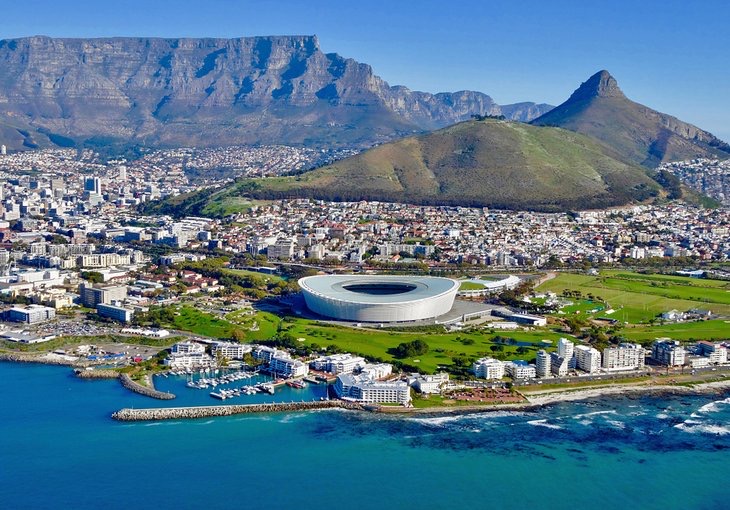“The future looks bright; there has been encouraging growth in our tourist arrival numbers between January and December, where it reached nearly 5.8 million, with over 4 million of those arrivals from African countries.” These were the words of the South African Minister of Tourism, Patricia De Lille, during her keynote address at Africa’s Travel at Indaba in Durban recently.
Culinary and food tourism is experiencing daily growth, with tourists eager to explore Africa’s local cuisines and culinary traditions. South Africa’s vibrant food scene, from traditional braais to fusion cuisine, has captivated food enthusiasts. Africa’s diverse culinary heritage offers significant potential in this regard. This and other tourism angles are looked into in this article.
Africa, the continent with the second-highest population in the world after Asia, spanning 20% of the planet’s land area and 6% of its overall surface area, with a total expanse of approximately 30.3 million km2, including nearby islands, has firmly established itself as a global economic powerhouse through tourism. This article takes a comprehensive look into the future of tourism in Africa, exploring the emerging trends, challenges, and opportunities that will shape the tourism industry. Here are some emerging trends.
When you look at African tourism, sustainability isn’t merely an option but a guiding principle. As the illustrious Peter Drucker aptly noted, “The best way to predict the future is to create it,” and sustainability takes centre stage. Inquisitive travellers are now on a quest for eco-friendly and responsible experiences, captivated by Africa’s diverse ecosystems and promises of conscientious management. From Namibia’s groundbreaking conservation initiatives to low-impact tourism, the choices of eco-conscious adventurers are profoundly influenced. The future promises to unfold a tapestry of eco-tourism, embracing responsible wildlife encounters and support for local communities, ensuring a harmonious coexistence between visitors and the natural world.
Post-pandemic, the world has awakened to a new craving for wellness and health tourism. Morocco’s timeless hammams and rejuvenating spa resorts beckon wellness enthusiasts, while the COVID-19 pandemic has underscored the importance of mental and physical health. Travellers are increasingly drawn to destinations that offer relaxation, mental well-being, and healthy culinary experiences. The horizon of possibilities in this sphere includes expanded wellness offerings, from tranquil yoga retreats and meditation centres to nourishing, health-focused dining.
In the era of tech-enhanced travel, the African tourism landscape is undergoing a technological revolution. Augmented reality (AR), virtual reality (VR), and artificial intelligence (AI) are redefining how travellers plan and experience their African journeys. Take Egypt, for example, where virtual reality enhances museum visits and historical site exploration, leaving indelible memories. The road ahead is paved with even more exciting opportunities, where technology will cater to personalised tours, seamless language translation, and contactless transactions.
As the yearning for authentic experiences grows, so does the appeal of remote and off-the-grid tourism. Travellers are seeking solitude, genuine encounters, and minimal environmental impact. The future beckons with a promise of exclusive, sustainable getaways, devoid of technology’s buzz but rich in the wonders of nature. From Botswana’s remote wilderness camps in the Okavango Delta to other hidden gems, this trend underscores the desire for more profound and untainted connections with the environment.
On the part of culinary and food tourism, a tantalising journey awaits as a world of flavours is to be discovered. Day by day, tourists are drawn to explore the culinary treasures and traditions of Africa. South Africa’s culinary scene, with its vibrant mix of traditional braais and fusion cuisine, is captivating food enthusiasts. Africa’s diverse culinary heritage harbours untapped potential. The future spells delectable adventures in African culinary tourism, with cooking classes, food festivals, and a celebration of the continent’s rich gastronomic tapestry.
Yet, in this promising journey, challenges loom on the horizon. Climate change, infrastructure shortcomings, overcrowding, safety concerns, and economic fragility are threats to African tourism’s future. Rising temperatures, natural disasters, and habitat disruptions endanger ecosystems, while subpar infrastructure and accessibility hamper growth. Overtourism, safety anxieties, and economic shocks can discourage travellers and disrupt the industry. However, in these challenges lie opportunities for innovation and growth, paving the way for a brighter, more sustainable future for African tourism.
Forging a Sustainable Tourism Future
Across Africa, a holistic transformation in tourism is underway. Sustainable practices are becoming a driving force, urging nations to adopt eco-friendly approaches, reduce carbon footprints, and invest in environmentally conscious infrastructure. By diversifying revenue streams and investing in various industries, African countries are shoring up their economies against the tides of volatility. Enhanced security measures, coupled with international partnerships, are prioritised to ensure the safety of all travellers. A newfound focus on destination management allows for the smoother flow of tourists, employing strategies like visitor quotas, timed entry tickets, and the promotion of off-peak travel. The vital pieces of this transformative puzzle are the investments, by both governments and private sectors, in transportation networks, including airports, roads, and rail systems, thus enhancing accessibility to a diverse array of tourist destinations. This collective commitment to sustainability and improvement is painting a promising and responsible future for African tourism.
Unlocking Africa’s Tourism Potential: Collaboration, Marketing, and Sustainability
In African tourism, a vibrant synergy of regional collaboration, potent digital marketing, community-based initiatives, ecotourism certification, and eco-conscious infrastructure is illuminating the continent’s path to greater tourism prosperity. Through regional partnerships and multi-country tours, African nations are dismantling cross-border travel restrictions and revitalising tourism.
Notably, the African Union’s Passport initiative stands as a symbol of progress, simplifying travel between African nations and fostering regional tourism, with South Africa leading the way with visa agreements and an innovative e-visa system. At the heart of this transformation is digital marketing, offering a global stage for African destinations to showcase their unique treasures, as exemplified by Kenya’s “Magical Kenya” campaign, which employs the allure of digital platforms and social media to captivate a worldwide audience. Encouraging local communities to partake in tourism provides economic growth while safeguarding culture and natural resources, as illustrated by Uganda’s community-based tourism initiatives. Distinguishing destinations committed to sustainability through ecotourism certification attracts responsible travellers, such as Botswana’s Eco-Tourism Certification Programme. Sustainable infrastructure development, marked by renewable energy solutions like Rwanda’s Sustainable Tourism Infrastructure, plays a pivotal role in enticing tourists while preserving the environment, ultimately painting a brighter future for African tourism.
The future of tourism in Africa holds immense promise but also presents significant challenges. Emerging trends such as sustainable tourism, technology integration, wellness travel, culinary exploration, and remote getaways offer unique opportunities for African nations to tap into a growing global market. However, addressing challenges such as climate change, infrastructure deficiencies, overcrowding, safety concerns, and economic vulnerability is paramount.
In her closing speech, Patricia De Lille insisted that “our people across the continent of Africa are our greatest asset. As Africans, we must do more to break down stereotypes by promoting cultural exchanges, celebrating excellence and diversity through song and dance, and sharing various cuisines that make Africa the magnet of international tourists.”
Africa, as a continent, has the power to navigate the complex tourism landscape by implementing sustainable practices, investing in infrastructure, promoting accountable tourism, and engaging in regional partnerships. Through these actions, Africa can unlock its full tourism potential, promoting economic growth, cultural preservation, and environmental conservation while providing unforgettable experiences for travellers from across the globe. The future of tourism in Africa is one of promise and potential, and it is up to Africans to seize this opportunity and shape a sustainable and thriving industry for years to come.


